- Home
- Peter F. Hamilton
The Naked God Page 2
The Naked God Read online
Page 2
>
Jay felt the last bit was included for her benefit. “Don’t be angry with Haile,” she said solemnly. “I would have done the same for her. And I didn’t want to die.”
Lieria reached out a tentacle tip, and touched Jay’s shoulder. <>
A sudden sensation of bleak horror threatened to engulf Jay. “Did Tranquillity really get blown up?” she wailed.
<
“We left,” Jay whispered wondrously to herself. There were eight adult Kiint standing on the arena floor now, all the researchers from Tranquillity’s Laymil project. “Where are we?” She glanced up at the dusky sky again, and that awesome constellation.
<
“But …” Flashes of didactic memory tumbled through her brain. She looked up at those enticing, bright planets again. “This isn’t Jobis.”
Nang and Lieria looked at each other in what was almost an awkward pause.
<
Jay burst into tears.
Right from the start of the possession crisis the Jovian Consensus had acknowledged that it was a prime target. Its colossal industrial facilities were inevitably destined to produce a torrent of munitions, bolstering the reserve stocks of Adamist navies which thanks to budgetary considerations were not all they should be. The response of the Yosemite Consensus to the Capone Organization had already shown what Edenism was capable of achieving along those lines, and that was with a mere thirty habitats. Jupiter had the resources of four thousand two hundred and fifty at its disposal.
Requests for materiel support started almost as soon as Trafalgar issued its first warning about the nature of the threat which the Confederation was facing. Ambassadors requested and pleaded and called in every favour they thought Edenism owed them to secure a place in production schedules.
Payment for the weapons involved loan agreements and fuseodollar transfers on a scale which could have purchased entire stage-four star systems.
On top of that, it was Edenism which was providing the critical support for the Mortonridge Liberation in the form of serjeant constructs to act as foot soldiers. It was the one utterly pivotal psychological campaign waged against the possessed, proving to the Confederation at large that they could be beaten.
Fortunately, the practical aspects of assaulting one or more habitats were extremely difficult. Jupiter already had a superb Strategic Defence network; and among the possessed only the Organization had a fleet which could hope to mount any sort of large-scale offensive, and the distance between Earth and New California almost certainly precluded that.
However, the possibility of a lone ship carrying antimatter on a fanatical suicide flight was a strong one. And then there was the remote possibility that Capone would acquire the Alchemist and use it against them. Although Consensus didn’t know how the doomsday device worked, a ship certainly had to jump in to deploy it, which in theory gave the Edenists an interception window to destroy the device before it was deployed.
Preparations to solidify their defences had begun immediately. Fully one third of the armaments coming out of the industrial stations were incorporated into a massively expanded SD architecture. The 550,000-km orbital band containing the habitats was the most heavily protected, with the number of SD platforms doubled, and seeded with seven hundred thousand combat wasps to act as mines. A further million combat wasps were arranged in concentric shells around the massive planet out to the orbit of Callisto. Flotillas of multi-spectrum sensor satellites were dispersed among them, searching for any anomaly, however small, which pricked the potent energy storms churning through space around the gas-giant.
Over fifteen thousand heavily armed patrol voidhawks complemented the static defences; circling the volatile cloudscape in elliptical, high-inclination orbits, ready to interdict any remotely suspicious incoming molecule. The fact that so many voidhawks had been taken off civil cargo flights was actually causing a tiny rise in the price of He3, the first for over two hundred and sixty years.
Consensus considered the economic repercussions to be a worthwhile trade for the security such invulnerable defences provided. No ship, robot, or inert kinetic projectile could get within three million kilometres of Jupiter unless specifically permitted to do so.
Even a lone maniac would acknowledge an attempted attack would be the ultimate in futility.
The gravity fluctuation which appeared five hundred and sixty thousand kilometres above Jupiter’s equator was detected instantaneously. It registered as an inordinately powerful twist of space-time in the distortion fields of the closest three hundred voidhawks. The intensity was so great that the gravitonic detectors in local SD sensor array had to be hurriedly recalibrated in order to acquire an accurate fix.
Visually it appeared as a ruby star, the gravity field lensing Jupiter’s light in every direction. Surrounding dust motes and solar wind particles were sucked in, a cascade of pico-meteorites fizzing brilliant yellow.
Consensus went to condition-one alert status. The sheer strength of the space warp ruled out any conventional starship emergence. And the location was provocatively close to the habitats, a hundred thousand kilometres from the nearest designated emergence zone. Affinity commands from Consensus were loaded into the combat wasps drifting inertly among the habitats. Three thousand fusion drives flared briefly, aligning the lethal drones on their new target. The patrol voidhawks formed a sub-Consensus of their own, designating approach vectors and swallow manoeuvres to englobe the invader.
The warp area expanded out to several hundred metres, alarming individual Edenists, though Consensus itself absorbed the fact calmly. It was already far larger than any conceivable voidhawk or blackhawk wormhole terminus. Then it began to flatten out into a perfectly circular two-dimensional fissure in space-time, and the real expansion sequence began. Within five seconds it was over eleven kilometres in diameter.
Consensus quickly and concisely reformed its response pattern.
Approaching voidhawks performed frantic fifteen-gee parabolas, curving clear then swallowing away. An extra eight thousand combat wasps burst into life, hurtling in towards the Herculean alien menace.
After another three seconds the fissure reached twenty kilometres in diameter, and stabilized. One side collapsed inwards, exposing the wormhole’s throat. Three small specks zoomed out of the centre. Oenone and the other two voidhawks screamed their identity into the general affinity band, and implored: <
For the first time in its five hundred and twenty-one year history, the Jovian Consensus experienced the emotion of shock. Even then, its response wasn’t entirely blunted. Specialist perceptual thought routines confirmed the three voidhawks remained unpossessed. A five-second lockdown was loaded into the combat wasps.
<
Syrinx simply couldn’t resist it. <
The counter-rotating spaceport was the first part to emerge from the gigantic wormhole terminus. A silver-white disk four and a half kilometres in diameter, docking bay lights glittering like small towns huddled at the base of metal valleys, red and green strobes winking bright around the rim. Its slender spindle slid up after it, appearing to pull the dark rust-red polyp endcap along.
That was when the other starships began to rampage out of the terminus; voidhawks, blackhawks, and Confederation Navy vessels streaking off in all directions. Jupiter’s SD sensors and patrol voidhawk distortion fields tracked them urgently. Co
nsensus fired guidance updates at the incoming combat wasps, determinedly vectoring them away from the unruly incursion.
The habitat’s main cylinder started to coast up out of the terminus, a prodigious seventeen kilometres in diameter. After the first thirty-two kilometres were clear, its central band of starscrapers emerged, hundreds of thousands of windows agleam with the radiance of lazy afternoon sunlight. Their bases just cleared the rim of the wormhole. There were no more starships to come after that, only the rest of the cylinder. When the emergence was complete, the wormhole irised shut and space returned to its natural state. The flotilla of patrol voidhawks thronging round detected a capacious distortion field folding back into the broad collar of polyp around the base of the habitat’s southern endcap that formed the bed of its circumfluous sea.
Consensus directed a phenomenally restrained burst of curiosity at the newcomer.
<
Dariat did the one thing which he had never expected to do again. He opened his eyes and looked around. His own eyes in his own body; fat unpleasant thing that it was, clad in his usual grubby toga.
The sight which greeted him was familiar: one of Valisk’s innumerable shallow valleys out among the pink grass plains. If he wasn’t completely mistaken, it was the same patch of ground Anastasia’s tribe had occupied the day she died.
“This is the final afterlife?” he asked aloud.
It couldn’t be. There was an elusive memory, the same befuddlement as a dream leaves upon waking. Of a sundering, of being torn out of …
He had fused with Rubra, the two of them becoming one, vanquishing the foe by shunting Valisk to a realm, or dimension, or state, that the two of them grasped was intrinsically adverse to the possessing souls.
Perhaps they had even created the new location by simply willing it to be. And then time went awry.
He gave his surroundings a more considered examination. It was Valisk, all right. The circumfluous sea was about four kilometres away, its clusters of atolls easily recognizable. When he turned the other way, he could see a fat black scar running down two-thirds of the northern endcap.
The light tube was dimmer than it should be, even accounting for the loss of some plasma. It proffered a kind of twilight, but grey rather than the magnificent golden sunset Dariat had experienced every day of his life.
The grass plain echoed that malaised atmosphere, it was uneasily torpid.
Its resident insects had curled up into dormancy; birds and rodents slunk back reticently to their nests, even the flowers had shrugged off their natural gloss.
Dariat bent down to pick an enervated poppy. And his chubby hand passed clean through the stem. He stared at it in astonishment, for the first time seeing that he was faintly translucent.
Shock finally liberated comprehension. A location hostile to possessors, one which would exorcise them from their enslaved hosts, denying them their energistic power. That was the destination he and Rubra had committed the habitat to.
“Oh, Thoale, you utter bastard. I’m a ghost.”
For nearly ten hours the lift capsule had skimmed down the tower linking Supra-Brazil asteroid with the Govcentral state after which it was named, a smooth, silent ride. The only clue to how fast the lift capsules travelled (three thousand kilometres per hour) would come when they passed each other. But as they clung to rails on the exterior of the tower, and the only windows gave a direct view outward, such events remained out of sight to their passengers. Deliberately so; watching another capsule hurtling towards you at a combined speed of six thousand kilometres per hour was considered an absolute psychological no-go zone by the tower operators.
Just before it entered the upper fringes of the atmosphere, the lift capsule decelerated to subsonic velocity. It reached the stratosphere as dawn broke over South America. On Earth that was no longer an invigorating sight; all the passengers saw was an unbroken murky-grey cloud layer which covered most of the continent and a third of the South Atlantic. Only when the lift capsule was ten kilometres above the frothing upper layer could Quinn see the army of individual streamers from which the gigantic cyclone was composed, flowing around each other at perilous velocities. The seething mass was as compressed as any gas-giant storm band, but infinitely drabber.
They descended into the slashing tendrils of cirrus, and the windows immediately reverberated from the barrage of fist-sized raindrops. There was nothing else to see after that, just formless smears of grey. A minute before they reached the ground station, the windows went black as the lift capsule entered the sheath which guarded the bottom of the tower from the worst violence of the planet’s rabid weather.
Digits on the Royale Class lounge’s touchdown counter reached zero, an event marked by only the slightest tremble as latch clamps closed round the base of the lift capsule. The magnetic rail disengaged, and a transporter rolled it clear of the tower, leaving the reception berth clear for the next capsule. Airlock hatches popped open, revealing long extendable corridors leading into the arrivals complex where treble the usual numbers of customs, immigration, and security officers waited to scan the passengers. Quinn sighed in mild resignation. He’d quite enjoyed the trip down, mellowing out with all the facilities the Royale Class lounge could provide. A welcome period of contemplation, assisted by the Norfolk Tears he’d been drinking.
He had arrived at Earth with one goal: conquest. Now at least he had some notions how to go about subduing the planet for his Lord. The kind of exponential brute force approach the possessed had used up to now just wasn’t an option on Earth. The arcologies were too isolated for that. It was curious, but the more Quinn thought about it, the more he realized that Earth was a representation of the Confederation in miniature. Its vast population centres kept separate by an amok nature almost as lethal as the interstellar void. Seeds of his revolution would have to be planted very carefully indeed. If Govcentral security ever suspected an outbreak of possession, the arcology in question would be quarantined.
And Quinn knew that even with his energistic powers there would be nothing he could do to escape once the vac-trains had been shut down.
Most of the other passengers had disembarked, and the chief stewardess was glancing in Quinn’s direction. He rose up from his deep leather seat, stretching the tiredness from his limbs. There was absolutely no way he’d ever get past the immigration desk, let alone security.
He walked towards the airlock hatch, and summoned the energistic power, mentally moulding it into the now familiar pattern. It crawled over his body, needle spears of static penetrating every cell. A swift groan was the only indication he showed of the grotesquery he experienced passing through the gateway into the ghost realm. His heart stopped, his breathing ceased, and the world about him lost its glimmer of substance.
The solidity of walls and floors was still present, but ephemeral.
Irrelevant if he really pressed.
The chief stewardess watched the last passenger step into the airlock, and turned back to the bar. Secured below the counter were several bottles of the complimentary Norfolk Tears and other expensive spirits and liqueurs which her team had opened. They were careful never to leave much, at most a third, before opening a new bottle. But a third of these drinks was an expensive commodity.
She began inventorying all these bottles as empty in her stock control block. The team would split them later, filling their personal flasks, and take them home. As long as they didn’t get too greedy the company supervisor would let it pass. Her block’s datavise turned to nonsense.
She gave it an annoyed glare, and automatically rapped it against the bar. That was when the lights started to flicker. Puzzled now, she frowned up at the ceiling. Electrical systems were failing all over the lounge. The AV pillar projection behind the bar had crashed into rainbow squiggles, the airlock hatch activators were whining loudly, though the hatch itself wasn’t moving.
“
What—?” she grumbled. Power loss was just about impossible in the lift capsules. Every component had multiple redundancy backups. She was about to call the lift capsule’s operations officer when the lights steadied, and her stock control block came back on line. “Bloody typical,” she grunted. It still bothered her badly. If things could go wrong on the ground, they could certainly go wrong half way up the tower.
She gave the waiting bottles a forlorn glance, knowing she was giving them up if she logged an official powerdown incident report. The company inspectorate authority would swarm all over the lift capsule. She carefully erased the inventory file she’d started, and datavised the lounge processor for a channel to the operations officer.
The call never got placed. Instead she received a priority datavise from the arrivals complex security office ordering her to remain exactly where she was. Outside, an alarm siren started its high-pitched urgent wailing.
The sound made her jump, in eleven years of riding the tower she’d only ever heard it during practice drills.
The siren’s clamour sounded muffled to Quinn. He’d watched the airlock lights quiver, and sensed the delicate electronic patterns of nearby processors storm wildly as he pushed himself through the gateway. There was nothing he could do about it. It took all of his concentration to marshal his energistic power into the correct pattern. Now it seemed that pattern had an above-average giveaway effect on nearby electronics—though nothing had happened when he’d slipped out of the ghost realm into the Royale Class lounge at the start of the descent. Of course, he wasn’t exerting himself then, quite the opposite, he’d actually been reining in the power.
Ah well, something to remember.
Thick security doors were rumbling across the end of the corridor, trapping stragglers among the passengers. Quinn walked past them, and reached the door. It put up a token resistance as he pushed himself through, as if it were nothing more than a vertical sheet of water.
The arrivals complex on the other side was made up from a series of grandiose multi-level reception halls, stitched together by wave stairs and open-shaft lifts. It could cope with seventy passenger lift capsules disembarking at once; a capacity which had been operating at barely twenty-five per cent since the start of the crisis. As Quinn made his way out from the sealed admission chamber at the end of the corridor, his first impression was that the air-conditioning grilles were pumping out adrenaline gas.

 A Night Without Stars
A Night Without Stars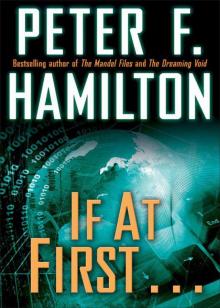 If at First . . .
If at First . . .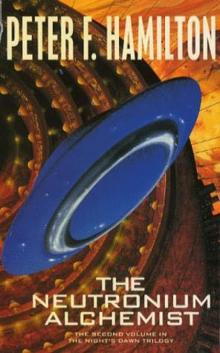 The Neutronium Alchemist
The Neutronium Alchemist Great North Road
Great North Road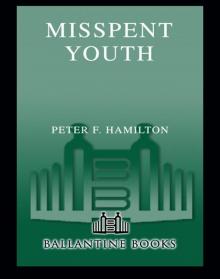 Misspent Youth
Misspent Youth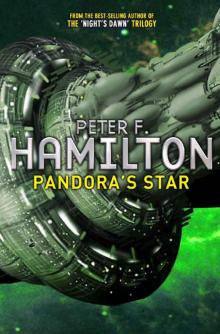 Pandora's Star
Pandora's Star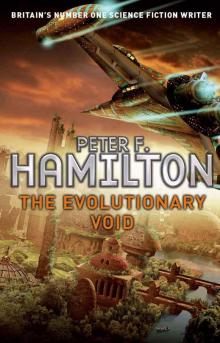 The Evolutionary Void
The Evolutionary Void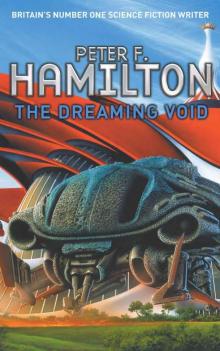 The Dreaming Void
The Dreaming Void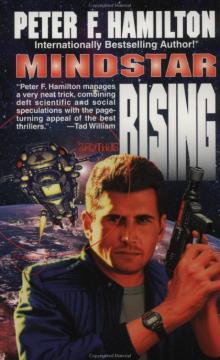 Mindstar Rising
Mindstar Rising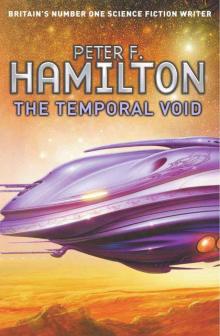 The Temporal Void
The Temporal Void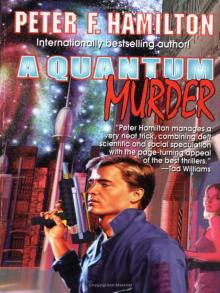 A Quantum Murder
A Quantum Murder The Hunting of the Princes
The Hunting of the Princes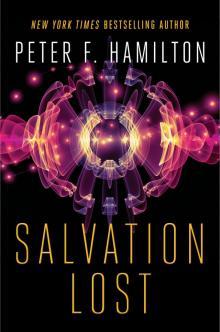 Salvation Lost
Salvation Lost The Dreaming
The Dreaming Salvation
Salvation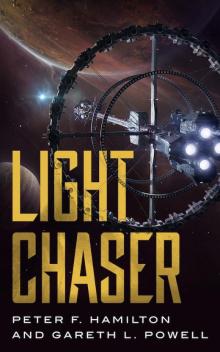 Light Chaser
Light Chaser The Mandel Files, Volume 2: The Nano Flower
The Mandel Files, Volume 2: The Nano Flower![The Saints of Salvation [British Ed.] Read online](http://i1.bookreadfree.com/22/the_saints_of_salvation_british_ed__preview.jpg) The Saints of Salvation [British Ed.]
The Saints of Salvation [British Ed.]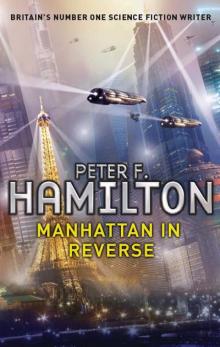 Manhattan in Reverse
Manhattan in Reverse The Secret Throne
The Secret Throne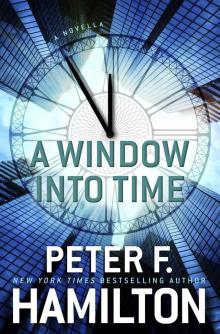 A Window Into Time
A Window Into Time A Second Chance at Eden
A Second Chance at Eden The Nano Flower
The Nano Flower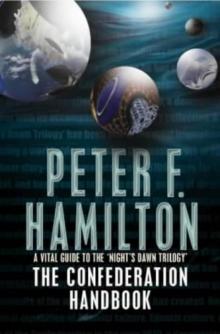 The Confederation Handbook
The Confederation Handbook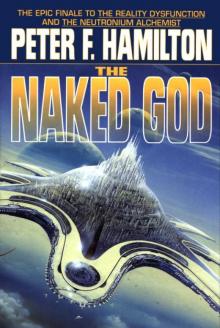 The Naked God
The Naked God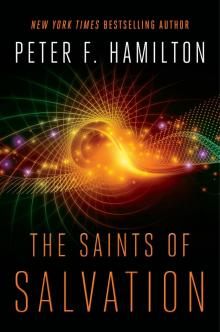 The Saints of Salvation
The Saints of Salvation The Void Trilogy 3-Book Bundle
The Void Trilogy 3-Book Bundle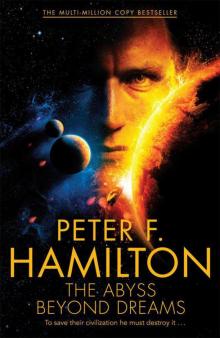 The Abyss Beyond Dreams
The Abyss Beyond Dreams A Voyage Through Air
A Voyage Through Air Judas Unchained
Judas Unchained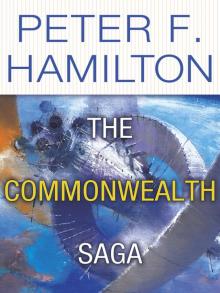 The Commonwealth Saga 2-Book Bundle
The Commonwealth Saga 2-Book Bundle The Naked God - Flight nd-5
The Naked God - Flight nd-5 Night Without Stars (Chronicle of the Fallers Book 2)
Night Without Stars (Chronicle of the Fallers Book 2)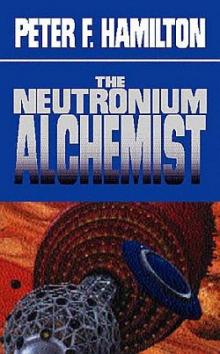 Neutronium Alchemist - Conflict nd-4
Neutronium Alchemist - Conflict nd-4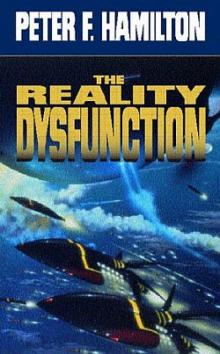 Reality Dysfunction - Expansion nd-2
Reality Dysfunction - Expansion nd-2 Now We Are Ten: Celebrating the First Ten Years of NewCon Press
Now We Are Ten: Celebrating the First Ten Years of NewCon Press Neutronium Alchemist - Consolidation nd-3
Neutronium Alchemist - Consolidation nd-3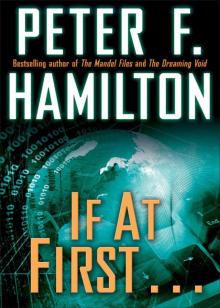 If at First . . . (Short Story)
If at First . . . (Short Story) A Second Chance at Eden nd-7
A Second Chance at Eden nd-7 Judas Unchained cs-2
Judas Unchained cs-2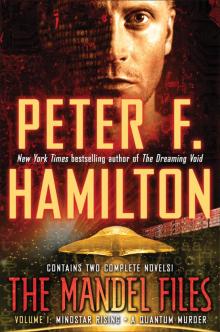 The Mandel Files, Volume 1
The Mandel Files, Volume 1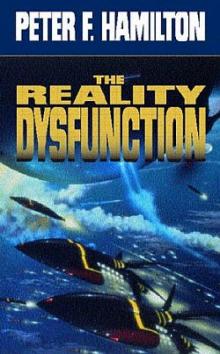 Reality Dysfunction — Emergence nd-1
Reality Dysfunction — Emergence nd-1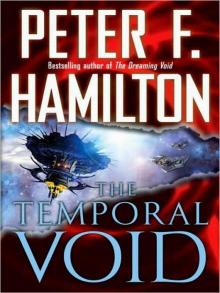 The Temporal Void (ARC)
The Temporal Void (ARC) The Mandel Files
The Mandel Files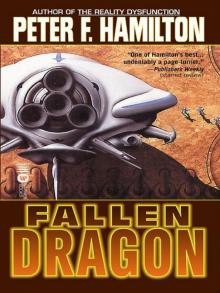 Fallen Fragon
Fallen Fragon Misspent Youth (commonwealth saga)
Misspent Youth (commonwealth saga)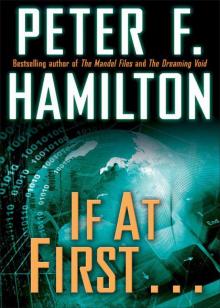 If at First...
If at First... Best of British Science Fiction 2016
Best of British Science Fiction 2016 The Mandel Files, Volume 2
The Mandel Files, Volume 2 The Naked God - Faith nd-6
The Naked God - Faith nd-6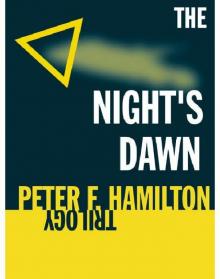 The Night's Dawn Trilogy
The Night's Dawn Trilogy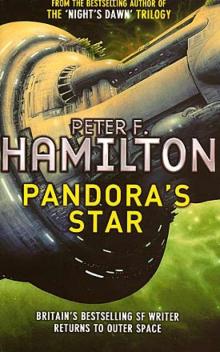 Pandora's Star cs-2
Pandora's Star cs-2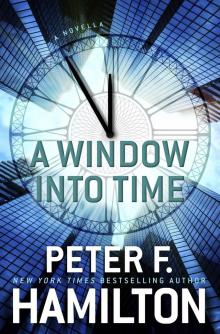 A Window into Time (Novella)
A Window into Time (Novella)